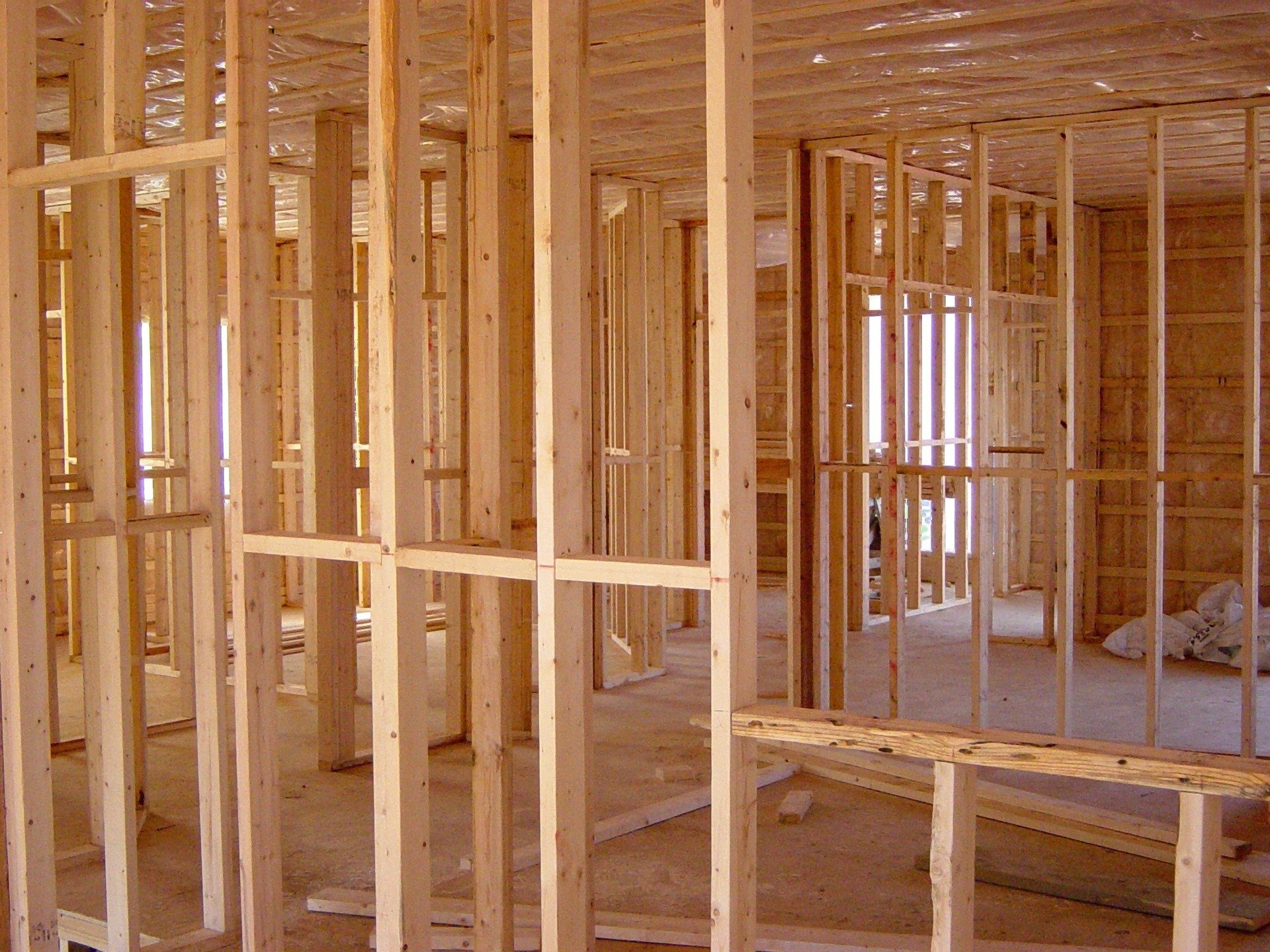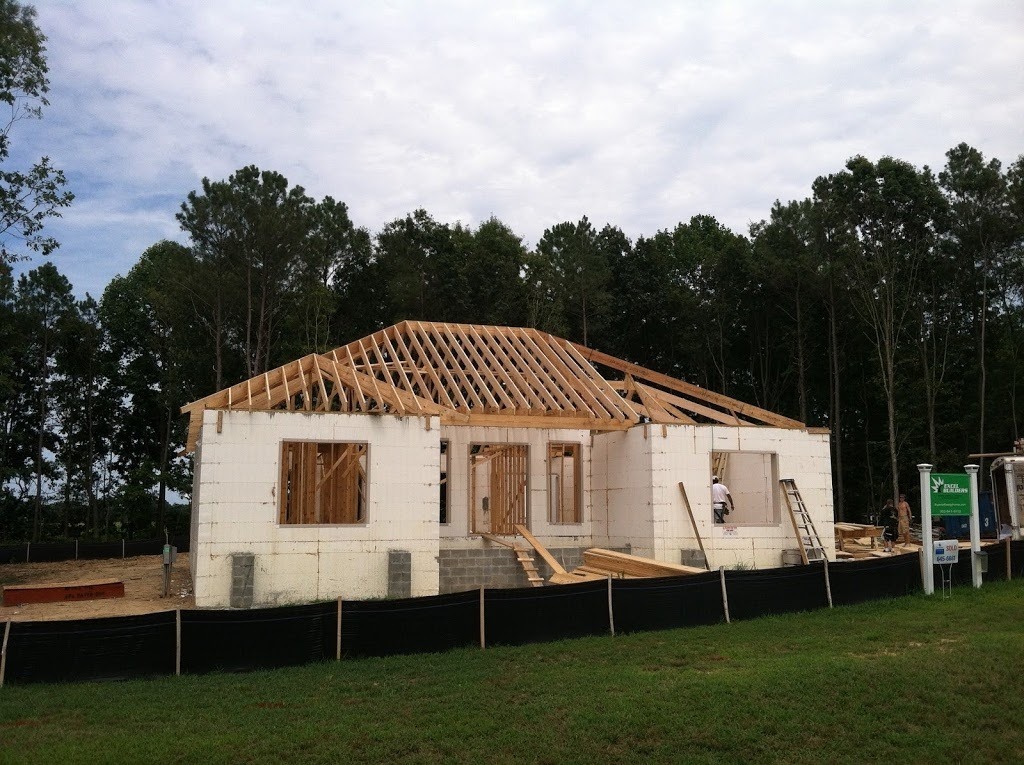
Comparing Costs of Concrete Block vs Wood Frame Construction and a Better Alternative to Both

When planning a residential construction project, one of the first questions to answer is concrete block or wood frame construction? Both of these construction types have their own pros and cons, but knowing the advantages and costs associated helps you make an informed decision. Learn more about wood frame and concrete block construction, plus an improved alternative to both.

Advantages of Concrete Block Construction
Wood framing is often more common, however concrete block construction provides big advantages that make it a worthy contender. Some of the biggest advantages of concrete block construction are:
Fire Resistance
One of the great aspects of concrete is that it is naturally fire resistant. Wood studs and plywood sheathing will burn whereas concrete blocks do not. Wood framing is often used on the interior of concrete block construction, but the concrete helps keep the whole structure more fire resistant.
Strength
While all new residential construction projects, whether wood or concrete, will be built to at least the minimum building codes, concrete block structures often have more strength than code requires. Concrete block homes are incredibly durable and make for a very well built home.
Termite Resistance
One of concrete’s greatest advantages is the natural termite resistance. With concrete construction, you won’t have to worry about those pesky pests eating away at your new home, which also keeps insurance rates lower too.

Advantages of Wood Frame Construction
Wood frame construction is popular for a reason, and some of its advantages can be hard to beat. Some of the advantages of wood construction are:
Better Insulation
Concrete blocks are sturdy but they do not have a very high R-value, or the ability to resist heat transfer. Good insulation has a high R-value. Wood frame construction provides a cavity for high performance insulation to be easily added to the wall to boost wood framing’s insulation performance.
Faster Build Times
Almost any construction crew will be familiar with wood framing techniques. The wide availability of labor and the techniques themselves allow wood framing to go up very quickly. Concrete block construction requires a masonry skillset, is typically a slower build, and will increase the total length of the project.
Thinner Walls
It is not normally an issue for most builds, but sometimes the size of walls can be a concern. Concrete block walls tend to be thicker than wood framing which can be an issue for smaller lots.
What’s the Cost Difference?
You’ve seen some of the advantages of both concrete block and wood frame construction, but what is the cost difference? For the equivalent square footage, concrete block homes tend to be more expensive to build. Material prices can fluctuate wildly, so it’s a good idea to get quotes close to the time of your construction project.
When quoting a concrete block home, it is important that you get pricing from a builder experienced in concrete block home construction. Their experience can help prevent surprise costs from creeping into the project.

Is There a Better Way?
If you understand the advantages of concrete block construction and wish there was a way to get those advantages without the high cost, you’re in luck. Insulated concrete forms (ICFs) from Fox Blocks are a better alternative to traditional concrete block construction.
ICF blocks consist of two sheets of high performance expanded polystyrene insulation, secured together into a block shape. The lightweight foam blocks are then assembled together, on site, according to the project plans. Reinforcement bars are placed in the openings between the forms and concrete is poured. When the concrete sets, what is left is an extremely strong, durable, and energy-efficient home.

Advantages of ICF Construction
The better insulation and faster build times traditionally associated with wood framing are not an issue when ICFs are used. With both interior and exterior panels of insulation, ICF construction is one of the most energy-efficient methods on the market.
In fact, ICFs from Fox Blocks boast an industry leading R-22 value for their insulation. Fox Blocks are great insulators, eliminating thermal bridging, and providing the thermal mass of the concrete, helps keep your home consistently comfortable even as the temperature changes outdoors.
ICF blocks are lightweight and can be assembled with minimal training, so installation is a breeze and often leads to material and build time savings. The all-in-one solution allows many of the construction aspects to be completed in one step. Fox Blocks saves on labor time by combining the framing, insulation, and weatherproofing into one easy step.
One of the reasons many people choose to build with Fox Blocks is because of how incredibly strong they are. The reinforced concrete structure is not just energy-efficient, it is also incredibly durable and reliable. Fox Blocks are even used in building storm shelters to keep people safe during severe weather.

To get the advantages of concrete block construction without the high price, use insulated concrete forms from Fox Blocks. Save time, money, and have a better finished product with insulated concrete forms. To learn more about how Fox Blocks can improve your next project, reach out to their experts today.